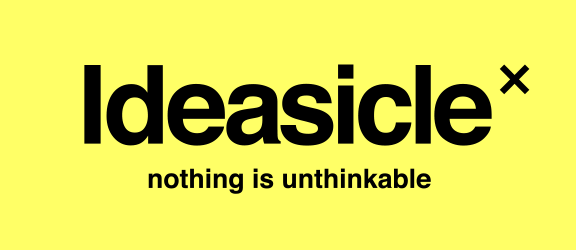Is Urgency Good Or Bad For Creativity? Yes, According To 3 Different Studies.
The pressure to perform creatively under time constraints creates a sense of urgency and stress, which, according to three separate studies, impacts creative thinking. But it’s not all bad, and the findings suggest an optimum approach to idea generation when the pressure’s on.
Three studies on time and creativity.
"The Effects of Time Pressure on Creative Thinking" (Amabile, 1996): This study investigated the impact of time pressure on creative thinking tasks. Participants were given various creative tasks and were randomly assigned to either a time-pressure condition or a no-pressure condition. The findings indicated that time pressure can hinder creative thinking by reducing the quantity and originality of ideas generated.
"The Effects of Time Pressure and Performance Expectations on Creativity" (Hülsheger, et al., 2009): This study explored the combined effects of time pressure and performance expectations on creativity. It found that both factors independently reduced creative performance. When individuals were under time pressure and had high performance expectations, their creative output was significantly diminished.
"Time Pressure and Creativity: Why Time Pressure Increases Creativity in Individuals But Hampers it in Teams" (Paulus & Dzindolet, 2008): This study investigated the differential effects of time pressure on individual creativity versus team creativity. The results indicated that time pressure can enhance individual creativity by increasing task engagement and motivation. However, in teams, time pressure led to reduced creativity due to negative group dynamics and decreased information sharing.
confused? think of it this way.
These studies suggest that while some individuals may experience a boost in creativity under time pressure, overall, high levels of time pressure tend to hinder a group’s creative thinking and idea generation. The relationship between time pressure and creativity can be influenced by factors such as task complexity, individual differences, and the nature of the creative problem at hand. Not to mention the consequences of failure, which is a key component to the levels of stress.
Now, think about the typical brainstorm that’s scheduled between 2:00-4:00 on a Tuesday, say. That limited time-frame already and artificially stacks the deck against the team with false urgency. You may as well be a sergeant in the army screaming at a cadet, “Come up with ideas NOW, soldier!”
Creativity doesn’t work that way.
Much better, if in person, to brief the individuals in advance, have them come up with ideas independently, and then share with a group to build and riff on them.
Which is exactly the dynamic we’ve created within our virtual model. The team is briefed online via video and PDF, hopefully inspired, and then left alone until ideas start to come, from them or from their teammates. Ideas then beget more ideas. In fact, we’ve had teams of four turned around 30+ ideas in just 24 hours.
But a 2 hour brainstorm in inherently built with urgency in the process, which only decreases the odds of creative success. Spread it out. Let the team breathe, think, noodle, and interact with everyday life.
Increase the odds of ideas by providing deadlines, but not artificial urgency.
Will Burns is the Founder & CEO of the revolutionary virtual-idea-generating company, Ideasicle X. He’s an advertising veteran from such agencies as Wieden & Kennedy, Goodby Silverstein, Arnold Worldwide, and Mullen. He was a Forbes Contributor for nine years writing about creativity in modern branding. Sign up for the Ideasicle Newsletter and never miss a post like this.


